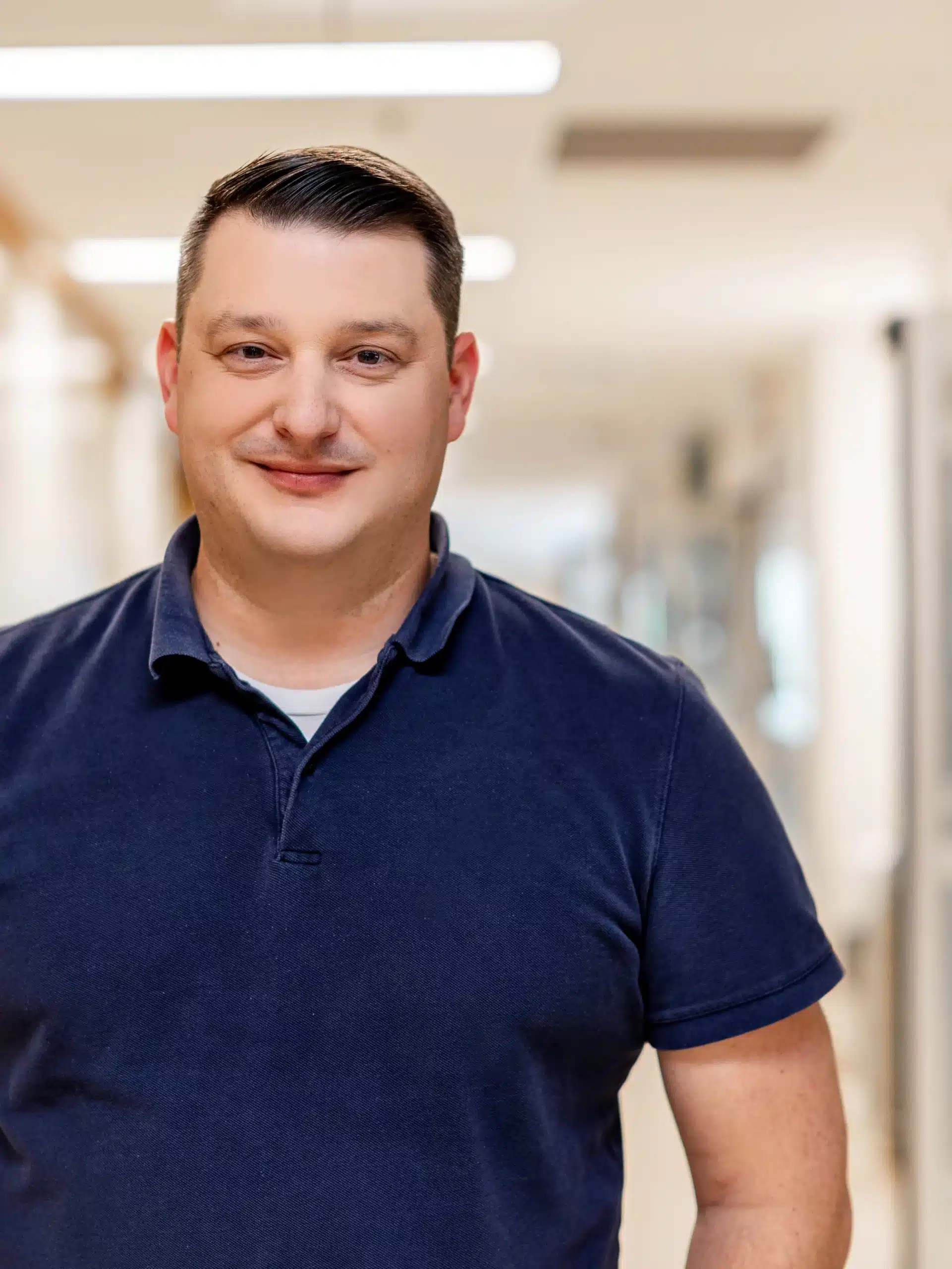Trust Your Instincts
Kent Mannen is a young father and husband. He’s active. He plays sports and helps coach his son’s hockey team. He’d been to RVH’s Emergency Department before, but for nothing like this.

A week earlier, while playing hockey with his buddies, Kent felt the first of his symptoms.
“I felt a little stitch in my side,” he said. “It had been a tough shift, so I went to the bench and had a few squirts of water and felt better.”
Over the next few days, little things started to get a bit more difficult. That pain kept coming back.
Friday, around 11 pm, he went to the Emergency Department at RVH. He had an electrocardiogram, or EKG, that records the electrical signals of the heart. The results were normal, meaning he wasn’t actively in cardiac arrest, but the doctor suggested a blood test to see what was going on.
His blood measured a troponin level that was off the charts.
“I had had a heart attack. They figured it probably happened earlier Friday morning.”
Kent was admitted. A special dye was injected into his coronary arteries so they could be seen clearly under an x-ray. The dye showed Kent’s left anterior descending (LAD) artery was 80% blocked.
“It happened in what they call the widow maker artery,” said Kent. “Most people who have a blockage here have a massive heart attack and don’t make it. I was lucky. The doctor put in a stent, and I was able to leave the hospital the following day.”
His cardiologist explained to him that if he had ignored this pain, it could have led to something more serious. And for Kent, that hit home.
“My dad and my grandfather both died from heart attacks,” he shared. “I figured I was a healthy guy. It took me by surprise.”
He participated in the six-month virtual Cardiovascular Rehab Program through RVH. Kent was connected with a kinesiologist, who in consultation with a cardiologist, developed an exercise program to help him get back to his regular, active life—which he did, quickly.
“They called it the widow maker. Most people who have this kind of blockage have a massive heart attack and don’t make it. I was lucky. The doctor put in a stent, and I was able to leave the hospital the following day.”
Kent Mannen
“I’m back on the ice, I’m playing sports,” said Kent. “I’ll be on aspirin and a few other medications for the rest of my life and I’m eating less salt, but those are just small things.”
Kent feels fortunate that he trusted his intuition and sought medical help.
“That’s my message to everyone in my life now,” he said. “If you’re feeling any kind of pain like that, go to the Emergency Department. Get it checked out. They don’t call it the widow maker for nothing.”
To help more patients like Kent get back to living their wild lives sooner, please consider making a donation to support the Keep Life Wild campaign to expand RVH.

